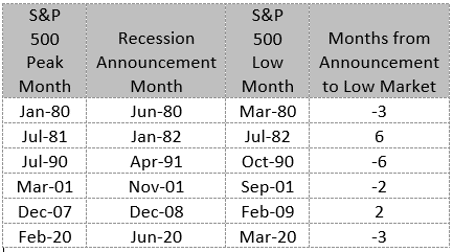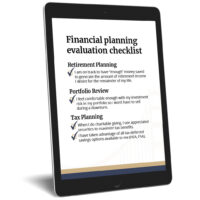
Recessions and your financial plan
The threat of a recession continues to be one of the most pressing concerns for investors. Inflation has proved hard to restrain, and the Federal Reserve continues to raise interest rates.
Disagreement on recession likelihood
Whether the U.S. will fall into a recession is still uncertain, and a subject of debate amongst experts. According to a recent UCLA Anderson Forecast, the U.S. is not currently in a recession, and the chance of a recession in the next 12 months is less than 50%. The most recent Conference Board Economic Forecast, however, predicts that U.S. economic weakness will intensify and spread more broadly throughout the economy, with a recession expected to begin before the end of the year. The difficulty in forecasting lies in the interpretation of several key data points: resilient consumer spending and a tight labor market despite rising interest rates.
Recessions and the stock market
What does the prospect of a recession mean for the stock market? Historically, the S&P 500 usually tops out before the start of a recession and bottoms out about before the end of a recession. In other words, the worst is over for stocks before the rest of the economy. Recessions are only formally defined in retrospect, often several quarters after they have begun, meaning that the market typically hits its low before or soon after the recession is announced. As the chart below shows, sometimes the worst is already over before we learn that a recession has occurred.
Investors should keep in mind two important facts: First, recessions are unpredictable. The Fed has raised rates in the past without triggering a recession. Also, recessions do not last indefinitely. Since World War II, the average recession has lasted about 10 months.
Planning through recessions
Recessions are a part of many economic cycles, and we take them into account when planning and setting asset allocations. They also present opportunities to rebalance and reallocate portfolios and take advantage of lower valuations. When in a recession make sure your emergency fund is healthy.
The Advisory Group can help with your recession financial plan
While market volatility can be very uncomfortable, disciplined investors tend to have better long-term outcomes. If you’ve been trying to navigate this year’s turmoil alone, we invite you to relieve the burden and talk with one of our Certified Financial Planners™. Schedule a complimentary conversation.
This article is a reposting of the Q3’22 quarterly letter we send to our clients. We feel it is important to share our perspective on the economy for everyone’s benefit.
The information provided herein is for informative and educational purposes only. The use of hyperlinks to third party websites is not an endorsement of the third party. Third party content has not been independently verified. To understand how this content may apply to you, please contact a financial advisor.





